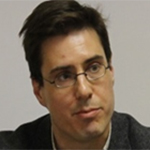
Andy Byford
Professor of Russian Studies, Durham University
The key objective of the Open World Research Initiative (OWRI) is for Modern Languages (ML) to become a more powerful, resilient and sustainable sector within UK higher education and research. I say ‘sector’ rather than ‘discipline’ because ML are not what is conventionally understood as a discipline. This does not mean that ML are not distinct or distinctive: they represent specialist domains and forms of knowledge; they foster unique expertise and skills; they develop modes of seeing and understanding the world that other areas of education and research do not. ML are, nonetheless, not only multi-, inter- and cross-disciplinary, but also exceptionally complex and diverse in terms of its (actual and potential) functions and identities beyond academia. This complexity and heterogeneity is undeniably a challenge for ML, but one that can be turned into an asset, provided that, first, the sector works together; and second, that it accepts its pluralism and makes the most of it.
The key idea behind OWRI is to help the sector mobilise behind a joint mission of overturning what has been diagnosed as its ‘crisis’ and decline. The purpose of this mobilisation is the creation of a common platform of action that enables ML to recover and prosper over the longer term. The stipulation is that the sector develop its own means of meeting the challenges and overcoming the obstacles, whatever these might be, now or in the future. Whether the issue is the much-reduced uptake of ML in UK schools, the university managers’ uncompromising drive for efficiency, the misunderstanding and condescension that ML often face within and outside academia, or the resurgence of xenophobia in UK society, the sector needs to find ways of dealing with such challenges itself.
OWRI is expected to enable the generation of activity within the ML sector that allows its significance to become recognised both within the universities themselves (e.g. by university management or by representatives of other disciplines and departments) and by bodies outside academia (policy makers, local authorities, schools, think-tanks, culture industries, NGOs) and, of course, the general public. OWRI is expected to foster joint action, in the name and for the benefit of the sector as a whole. But this can work only if the sector proves capable of overcoming inner divisions and hierarchies, produced by institutional rivalries or disciplinary prejudices. The hope is that the sector can pool its diverse institutional and disciplinary resources, skills, talents and ideas and invest them in the joint mission of strengthening the sector’s position within UK academia and society.
However, this emphasis on a joint mission does not mean that the sector should be seeking a uniform path to salvation that all its parts would want to follow. Some may be tempted to develop an integrated set of ‘disciplinary’ values and identities that all would be happy to subscribe to. Others might be looking to design the most effective and efficient model of operations that all in the sector might wish to emulate.
Such ambitions would, however, be doomed to failure from the start. The challenges that the sector faces are wide-ranging and unequally distributed across the sector. There is, of course, plenty of overlap of experience and predicament, and hence good reason to share ideas and solutions across the sector. However, it is also true that different institutions, different languages and different disciplinary strands within the sector are not facing quite the same challenges and, more importantly still, possess very different means and resources for tackling them.
The ML sector’s heterogeneity is a weakness if it translates into fragmentation and division, into unhealthy institutional competition or cross-disciplinary intolerance. But it becomes a significant strength if different parts of the sector recognise that all are, in different ways, essential contributors to the sector’s thriving across the many different niches in what is an exceptionally complex ML ecology, academic and non-academic.
ML will thrive only if the sector embraces its heterogeneity. It is this that lends the sector the potential to become a particularly robust and successful part of UK academia. But for this to happen it is essential to foster two things simultaneously: on the one hand, the sense of unity for the sector through collaboration and joint action between and across the multiplicity of communities that form it (communities that might not normally see themselves as part of the same meta-community, but need to realise that they are); and, on the other, a vibrant pluralism of models and approaches, of values and ambitions, of ideas and solutions, where the aim is not to outperform others, but to develop different ways in which ML can thrive.

